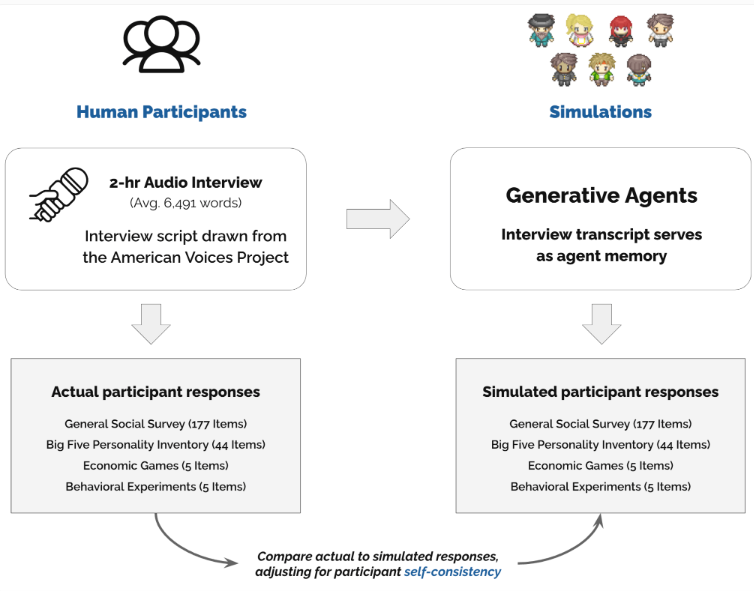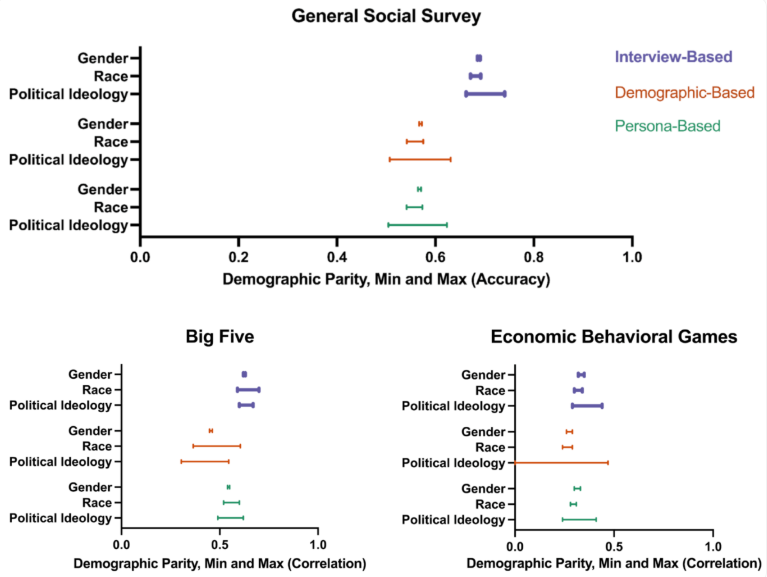The editor of Downcodes learned that research teams from Stanford University, University of Washington and Google DeepMind jointly developed a new type of AI agent that can accurately simulate human behavior and achieve impressive results in social experiments. This research provides a powerful laboratory tool for theory testing in social science fields such as economics, sociology, organizations, and political science, providing new avenues for a deeper understanding of human behavior. The research team used interview data from more than 1,000 American voters and combined it with the GPT-4o model to train an AI agent that can highly restore human reactions. The results and data of this research have been publicly released, providing a valuable resource for scientists around the world.
Recently, a research team from Stanford University, University of Washington, and Google DeepMind developed a new type of artificial intelligence (AI) agent that can accurately simulate human behavior in social experiments. According to their research, this simulation technique promises to provide a laboratory basis for theory testing in fields such as economics, sociology, organizations, and political science.

The researchers built these AI agents using interview data from more than 1,000 U.S. voters. The age, gender, educational background, and political views of these interviewees represent the diversity of American society. The AI agent analyzes these interview records and uses the GPT-4o model to reproduce the interviewees' true reactions when users ask questions.
In terms of specific implementation, the research team conducted a two-hour in-depth interview for each participant and used OpenAI's Whisper model to convert the interview content into text. This method greatly improves the accuracy of AI agents. In a test of predicting human behavior, an AI agent based on interview data successfully predicted human responses to general social surveys with 85% accuracy, significantly better than an AI agent that relied solely on basic demographic information.
The researchers also conducted five social science experiments, and the results showed that in four experiments, the results produced by the AI agents were highly consistent with the responses of human participants, with a correlation coefficient of 0.98. This suggests that interview-based methods demonstrate greater accuracy and better balance in the analysis of responses from different political ideologies and ethnic groups.
To facilitate follow-up research, the research team uploaded the data set of 1,000 AI agents it created to GitHub for use by other scientists. To protect participant privacy, the team adopted a two-tier access system.

Scientists have free access to aggregate response data for certain tasks, whereas access to individual response data in open studies requires special permissions. This system is designed to help researchers better study human behavior while protecting the privacy of original interview participants.
Project entrance: https://github.com/joonspk-research/genagents
The breakthrough significance of this research lies in its accuracy in simulating human behavior and its potential contribution to social science research. By making the data set publicly available, this research is expected to promote more research on human behavior and social phenomena, providing new perspectives for more accurately understanding and predicting social development. The editor of Downcodes looks forward to this technology bringing more surprising results in the future.